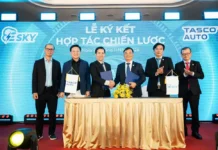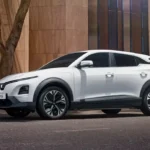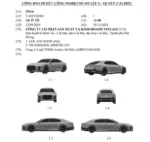
|
According to the Bangkok Post, a recent study conducted by Differential (Thailand) revealed that Thai consumers are exhibiting a trend towards reduced purchases of new automobiles or extending the usage period of their current vehicles. This shift is attributed to the sluggish performance of the economy.
Extended Vehicle Usage
The research gathered data from over 2,500 Thai customers who purchased vehicles between November 2020 and December 2022.
Approximately 70% of respondents indicated that they would only consider buying a new automobile when their current vehicle reaches a certain age, with an average of 9 years according to the survey results.
In the period of 2017-2018, most Thais surveyed previously stated that they only planned to purchase a new automobile when the usage period of their old vehicle surpassed the 7-year mark.
As per the Bangkok Post, the survey results reflect the impact of economic conditions on Thai consumers’ purchasing decisions, particularly for high-value items such as automobiles.
|
|
|
Thais are tending to use cars for longer periods. Image: BIMS. |
The reduced rate of vehicle depreciation during the pandemic period also influenced the decision to purchase new cars among Thais.
The Differential survey revealed that car breakdowns, lifestyle changes, and high maintenance costs were the top three reasons prompting Thais to decide to change their vehicles.
About 46% of the total surveyed participants intended to remain loyal to their current brand when purchasing their next vehicle, while around 6% planned to switch to a new brand. A significant 48% were uncertain about their choice.
Differential’s research also indicated that owners of Chinese-made vehicles exhibited the lowest brand loyalty, with only 28% stating they would repurchase from the same manufacturer.
Approximately 9% intended to switch to a different brand, and a substantial 63% were unsure whether they would remain loyal to the Chinese brand or opt for a different manufacturer.
|
|
|
Only around 28% of Chinese car owners in Thailand are willing to remain brand loyal for their next purchase. Image: Paultan. |
In contrast, approximately 48% of Japanese car owners expressed their intention to remain loyal to the brand. Merely 5% planned to switch to a different brand, and about 46% were uncertain about their choice for their next vehicle purchase.
Mr. Siros Satrabhaya, Executive Director of Differential, attributed this disparity to the time required to establish customer trust.
“Chinese automotive brands have only recently entered the Thai market. As a result, Thais have not yet had the opportunity to develop a positive relationship with these brands. Chinese manufacturers need more time to gain the trust of consumers,” remarked Mr. Siros Satrabhaya.
Electric Vehicle Owners in Thailand Are Satisfied
The loyalty rate for electric vehicles in Thailand is notably high, with over half of electric vehicle owners stating they would continue to choose fully electric cars in the future. On the other hand, around 25% intended to switch to internal combustion engine vehicles for their next purchase.
|
|
|
More than half of electric vehicle owners in Thailand will continue to choose fully electric cars for their next purchase. Image: The Japan Times. |
About 52% of the total surveyed participants by Differential indicated they would opt for internal combustion engine vehicles when buying a new car. Only 15% of those surveyed chose electric vehicles, while the percentage for hybrid or plug-in hybrid vehicles stood at 23%.
Mr. Siros Satrabhaya opined that this ratio could easily shift depending on various factors, such as fuel costs.
“If oil prices remain high, Thais are likely to choose electric vehicles for their next purchase,” predicted Mr. Siros Satrabhaya.
Recommended Reads for Your Journey
The ‘Xe’ category presents readers with captivating book titles covering a diverse range of topics. During your travels, there may be moments of relaxation, and books can be a delightful companion during such times.
The Electric Car Tax Policy: China Fights Back.
The Chinese Ministry of Commerce has recently filed a complaint with the World Trade Organization (WTO), challenging the European Union’s (EU) anti-subsidy measures on Chinese-made electric vehicles. This move by China is an assertive step to protect its domestic electric vehicle industry and ensure its global competitiveness. The complaint alleges that the EU’s actions are inconsistent with WTO rules and may negatively impact the growth of this innovative and environmentally friendly sector. With this challenge, China seeks to uphold fair trade practices and promote the sustainable development of the electric vehicle industry, not just domestically but on a global scale.
What’s Left to Anticipate at the Vietnam Motor Show?
The automotive landscape is evolving, and the VMS 2024 event is set to showcase a shift in the market. With a focus on innovation and a changing industry dynamic, the stage is set for Japanese and Chinese automakers to steal the spotlight from traditional powerhouses like Mercedes-Benz, Ford, and BMW. This shift signals a new era in automotive excellence, where the East meets West and a diverse range of vehicles take center stage.












































